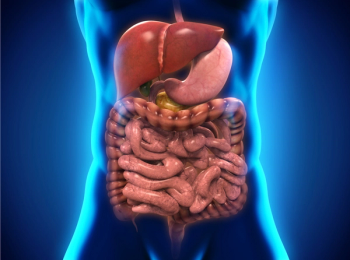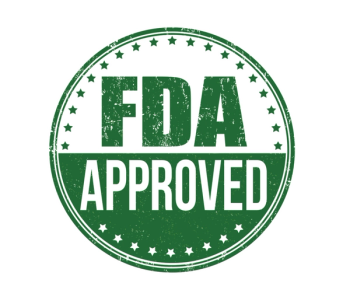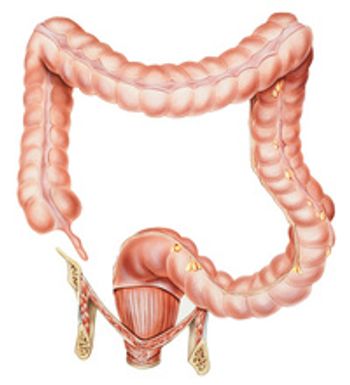
However, uncomplicated diabetes was not significantly linked to a greater risk of all-cause mortality or death from colorectal cancer.

However, uncomplicated diabetes was not significantly linked to a greater risk of all-cause mortality or death from colorectal cancer.

This is the first phase 3 trial to evaluate a KRAS G12C-inhibitor plus an anti-epidermal growth factor receptor antibody for this type of colorectal cancer.

The results also indicate an association with increased risk of colorectal and noncolorectal gastrointestinal cancers as body mass index increases over time.

In the study, investigators incorporated data from electronic health records and social determinants of health into the model to determine the likelihood in delays when starting cancer therapy.

A cancer vaccine has shown efficacy in dogs, with implications for benefit in humans.

Additionally, data from the SCARLET trial presented at ASCO 2023 indicate the safety and efficacy of sotorasib in combination with platinum-based chemotherapy treating non¬–small cell lung cancer.

Trial results support 5.4 mg/kg of trastuzumab deruxtecan as the optimal dose in individuals with HER2+ metastatic colorectal cancer.

Prediagnostic weight loss could be an important marker for colorectal cancer diagnosis.

Experts note that pharmacists are well positioned to play a key role in precision oncology and molecular tumor boards.

Research has even shown that cancer diagnosis can be significantly improved using AI, with real-time data updates, personalized attention, and ultimately better results at lower costs.

The patient's list of medications reveals significant drug interactions to be addressed.

Patients who received first-line ICI showed a significant improvement in progression-free survival (PFS) and overall survival (OS) compared to chemotherapy treatment.

This is the first indication for tucatinib that extends beyond the treatment of advanced unresectable or metastatic HER2-positive breast cancer.

The stool-test is the first-of-its-kind to detect CRC in adults aged 45 to 49 years, with a premarket approval submission planned to be sent to the FDA early in 2023.

The findings show promising clinical activity and a favorable tolerability profile in the treatment of KRASG12C-mutated advanced colorectal cancer.

The opportunity to provide non-invasive colorectal cancer screening and education to patients is undoubtedly a role that pharmacists can fill.

The protein is vitally important and could be a prognostic indicator and potential therapeutic target.

Identifying how survivors adjust to their cancer may help health care providers provide tailored self-management skills.

Regular physical activity helps to facilitate a healthy gut microbiome and lowers inflammation, which were observed in patients independent of body mass index.

A recent study did not find a significant association between a healthy plant-based diet and the risk for colorectal cancer among 93,475 US women.

Nearly 8 out of 10 individuals within the recommended age range for colorectal cancer screening are considered to have an average risk for the disease.

By 2019, lung cancer mortality rates decreased by 5.4% in males since 2015, while deaths from ovary cancer have also declined rapidly over the past 2 decades.

Patients with synchronous liver metastases from colorectal cancer have been found to have worse outcomes than those with metachronous liver metastases.

Bevacizumab-adcd (Vegzelma) is indicated for the treatment of nonsquamous non–small cell lung cancer; recurrent glioblastoma; metastatic colorectal cancer; persistent, recurrent, or metastatic cervical cancer; metastatic renal cell carcinoma; and epithelial ovarian, fallopian tube, or primary peritoneal cancer.

The FDA accepted a supplemental New Drug Application for tucatinib to treat HER2 colorectal cancer, which could significantly improve outcomes for these patients.